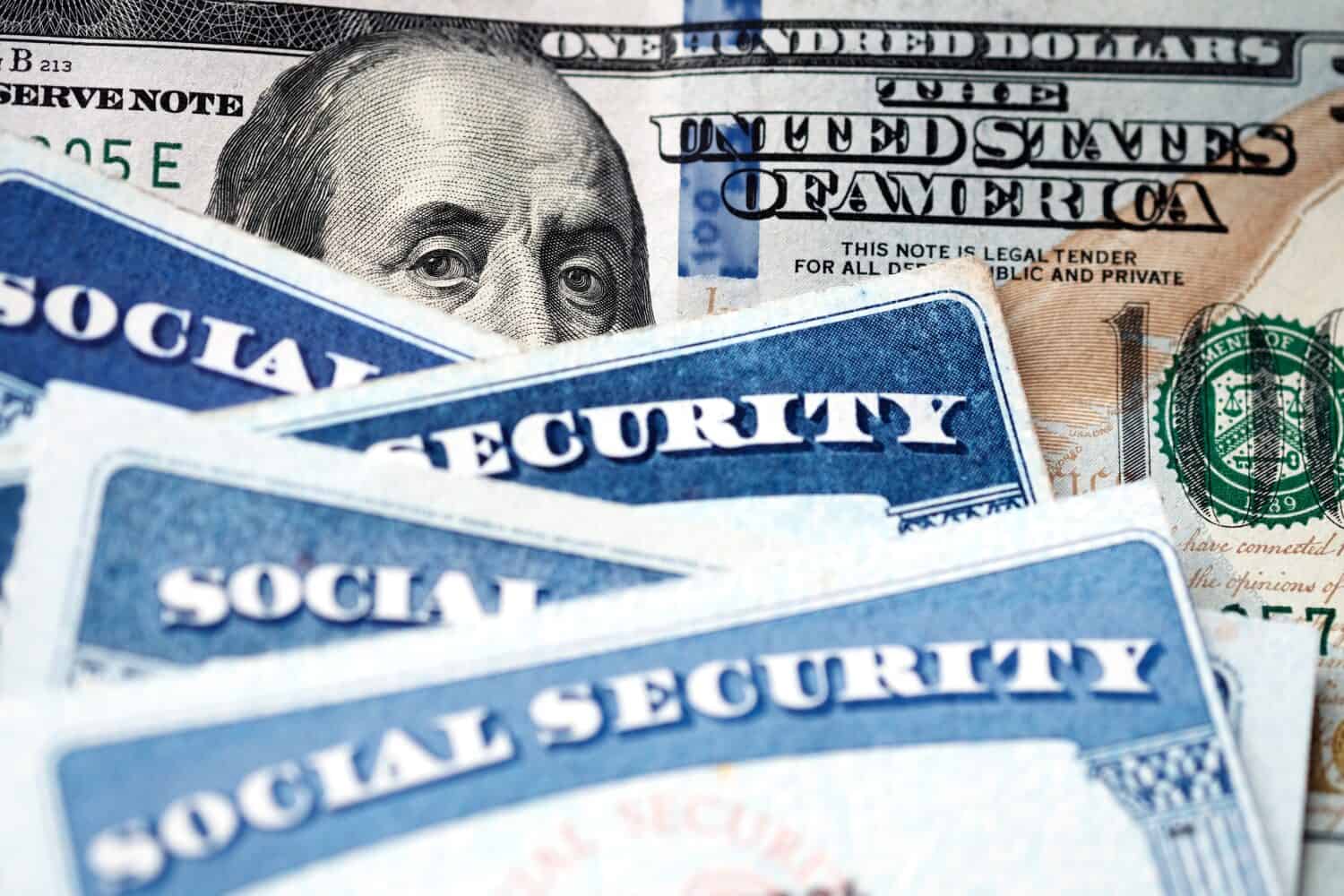Personal Finance
What Social Security Could Look Like Under a Trump Presidency for Baby Boomers Ready to Retire

Published:

Donald Trump’s 2024 presidential victory will undoubtedly have plenty of implications for the overall stock market. Whether we’re talking about asset prices or potential impacts on inflation, the market is re-pricing almost everything right now. At least for the time being, most retirees have seen their portfolios increase in value since the election results were announced.
However, for baby boomers looking to retire (nearing or entering retirement), changes could be afoot when it comes to how social security may be administered over the course of the coming administration. Of course, much of what’s being discussed in the media right now is speculation, at best. No one really knows what president Trump will do when he takes office, and how many of his promises or discussed policies may be implemented.
But for now, I do think those who are nearing retirement age may want to consider the following key changes that are most likely to take place under a Trump administration. If I were entering retirement (I’m still a ways out), this is what I’d be watching right now.

One of Trump’s most notable proposals as part of his re-election bid has been to eliminating taxes on social security benefits. This move is one that will undoubtedly benefit retirees, especially the 40% who currently pay federal income tax on their benefits. The tax thresholds, set in 1983, have not been adjusted in quite some time. This has caused many receiving Social Security benefits to have benefits that are taxed at levels that really don’t make sense. In effect, whatever changes will be put in place will certainly reflect today’s reality much better than the previous system in place, and make life much more affordable for those who rely primarily on their fixed income from social security in retirement.
Now, some analysts from experts has suggested that the wealthy may benefit most from the elimination of taxes on Social Security benefits. Households earning between $63,000 and $200,000 would see the biggest tax cuts, while lower-income households would not benefit as much. However, it’s also true that in today’s day and age, the cost of living and the required distributions many will be forced to take from their retirement plans may push a greater number of households into a higher tax bracket, so what was once considered “high income” may no longer be.
Now, these tax cuts have not been formally put through, and the timeline of when an elimination of taxes on social security benefits will be processed remains uncertain. However, given what could be a re-shaped congress picture come mid-term elections, it’s likely Trump will try to push through his tax reforms in the first two years of his term.

Another key topic many retirees may want to be aware of is Donald Trump’s proposed plans to reshape Medicare in the U.S. The former president has talked specifically about reforming the Medicare Advantage program, which covers more than half of beneficiaries. With Trump and Republicans advocating for its expansion, Project 2025 proposes making insurer-run plans the default for Medicare enrollment.
Taking the burden off of the government to provide health care for seniors would undoubtedly reduce the country’s deficit, but could lead to changes in how healthcare services are provided. A further privatization of Medicare may have some benefits, in that Medicare Advantage plans tend to offer more benefits. However, increased insurer control (over which providers can be seen) and the potential for higher taxpayer costs over time may offset any budgetary benefits of the government pushing seniors toward this route.
We’ll have to see how the Trump Administration looks to transform the healthcare dynamic in the U.S. But both Trump and Harris did run on platforms looking to improve Medicare, so we’ll have to see just how benefits ultimately change over time before casting judgment on what the administration may do moving forward.

Donald Trump has been a long-time proponent of lower interest rates, and has suggested in the past he feels the government should have more say in how interest rate policy is set. As many readers are well aware, the Federal Reserve is an independent body tasked with raising and lowering interest rates to optimize maximum employment and inflation levels for the benefit of the American people. However, readers may also remember that Trump has been publicly critical of the Fed in the past, pushing officials to lower interest rates to boost the economy, a scenario many believe could play out yet again in his second term.
The Federal Reserve is on an interest rate cutting cycle currently, and that’s projected to continue into next year. Barring a major economic shock or recessionary forces picking up, it’s now expected that interest rates may stay higher for longer. And if Trump’s budget deficits balloon due to tax cuts, the market may find a reason to push longer-term bonds lower, increasing yields and the effective interest rates most consumers pay on loans of varying durations.
In most respects, I don’t know how much effect Donald Trump will have (in reality) on interest rate policy moving forward. I do think he’ll be pretty vocal about his views of where interest rates are set; but the extent to which his rhetoric results in anything meaningful happening remains to be seen.
That said, there are many who believe that Trump may be able to effect change in some fashion, and help be a force to bring rates lower. We’ll see, I’m not holding my breath on this one.

The future of Social Security and other retirement benefits under a Trump presidency remains uncertain. It’s clear that president Trump will likely push for his tax reforms early in his term, and those taxation changes on social security benefits are the most likely outcome I think most seniors should look for in the coming year or two.
There may be some resistance to his ideas, if budget deficits aren’t appropriately addressed in the coming years. We’ll have to see if his “Department of Government Efficiency” can make any progress in bringing down costs in a meaningful way, or if things will mostly continue on as they have been for decades.
I’m of the view that seniors should continue to budget for rising costs and higher interest rates over the medium-term. Preparing for the worst, and hoping for the best, is a strategy that most can be comfortable with. I don’t think anyone really knows what Trump will do in his second term, but I also know that many will watch his policy proposals closely. We’ll see.
Retirement can be daunting, but it doesn’t need to be.
Imagine having an expert in your corner to help you with your financial goals. Someone to help you determine if you’re ahead, behind, or right on track. With SmartAsset, that’s not just a dream—it’s reality. This free tool connects you with pre-screened financial advisors who work in your best interests. It’s quick, it’s easy, so take the leap today and start planning smarter!
Don’t waste another minute; get started right here and help your retirement dreams become a retirement reality.
Thank you for reading! Have some feedback for us?
Contact the 24/7 Wall St. editorial team.